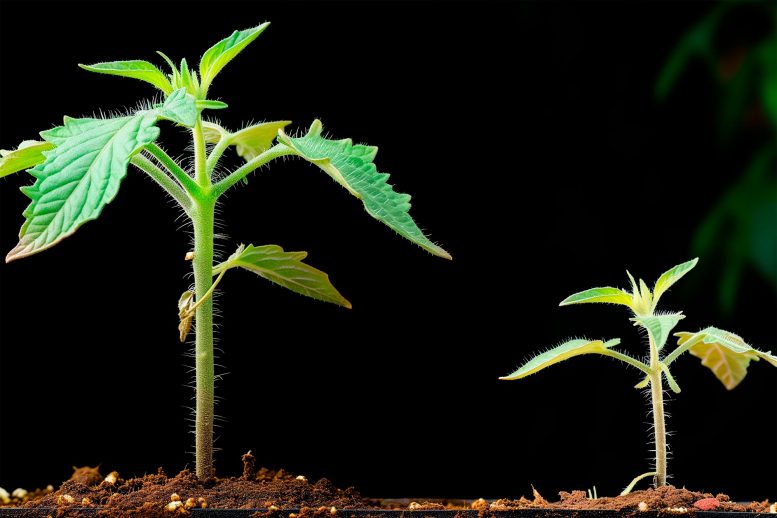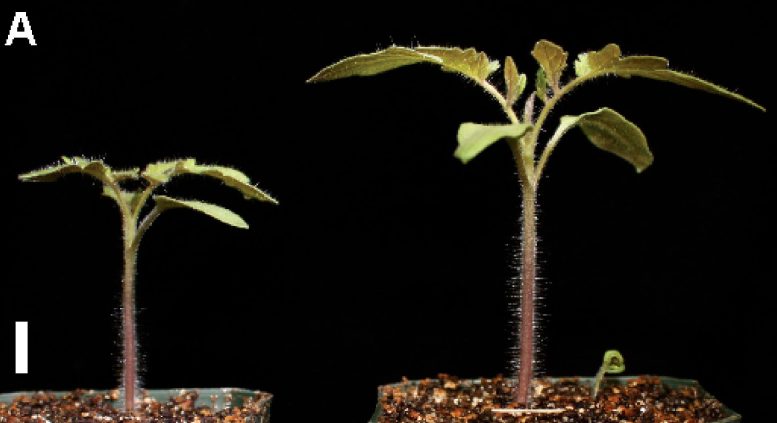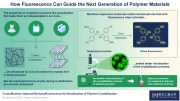
Research reveals that treating seedlings with ethylene in darkness, followed by light exposure, enhances their growth and stress tolerance. This method, first observed in Arabidopsis thaliana, also applies to crops like tomatoes, cucumbers, and wheat. Credit: SciTechDaily.com
Treating seedlings with ethylene in the dark, followed by light, enhances growth and stress resistance in plants, presenting a significant advancement in agricultural practices.
Exposing seedlings to ethylene in darkness can significantly enhance their size and vigor, a discovery with far-reaching implications for agriculture. For thousands of years, farmers have endeavored to boost crop yields, a mission that remains critical as the global population grows. However, increased yields often lead to decreased stress tolerance in plants.
Study Insights and Methodology
Brad Binder and his team sought to increase plant yield without compromising resilience by employing ethylene, a gaseous plant growth hormone. Prior studies showed that seedlings grown in darkness and treated with ethylene exhibited stunted growth and a distinct hooked shape. However, the team discovered that seedlings treated with ethylene in the dark for several days and then exposed to light (while ceasing ethylene treatment) performed better than control groups. These seedlings demonstrated enhanced root growth, denser lateral roots, and increased fresh weight of aerial tissues. This phenomenon was initially observed in Arabidopsis thaliana, a mustard relative used as a model plant, and later in tomatoes, cucumbers, and wheat.

Ethylene enhances the growth of tomato (Solanum lycopersicum, cultivar Floridade). Credit: Brenya et al.
Additional Findings and Conclusions
Adding sugars to the treatment given in the dark amplified the effect, suggesting that the ethylene treatment helps the plant ramp up its metabolism in preparation for emergence from the soil into the sunlight. A metabolomics analysis and RNA sequencing analyses corroborated this theory. In addition, experiments showed that plants treated with ethylene during darkness were more tolerant of extreme heat, salty soil, and low oxygen levels than controls. The results suggest that ethylene treatments could help improve yields across a range of crops without sacrificing stress tolerance, a significant advancement for agriculture.
For more on this discovery, see How a Whiff of an Unusual Chemical Transforms Seedlings Into Super Plants.
Reference: “Ethylene-mediated metabolic priming increases photosynthesis and metabolism to enhance plant growth and stress tolerance” by Eric Brenya, Esha Dutta, Brittani Herron, Lauren H Walden, Daniel M Roberts and Brad M Binder, 18 July 2023, PNAS Nexus.
DOI: 10.1093/pnasnexus/pgad216









So not having an ethylene generator for barns full of potatoes whose sprouting is suppressed by ethylene I think, I’d be inclined to have banana peel under the gas pellicle (food wrap or old packaging or sprouter.) Anyone know easy dosimetry (Et conc. litmus paper?) Looks like Bosean and Coreel among others make reusable $90 detectors with displays.
Yeah we’re doing experiments like this right now on our plants other things like carbon dioxide and other enhancements very interesting article
This is 40-year old news. Am I the only one who remembers anything earlier than the Internet.
Eric m Jones your not old I still remember using those books that you had to purchase,now I can’t remember what they were called
This work was the breakthrough of Tennessee University. Of course ScitlTechDaily does not even mention any of this. Disgraceful to our scientific community!!!!